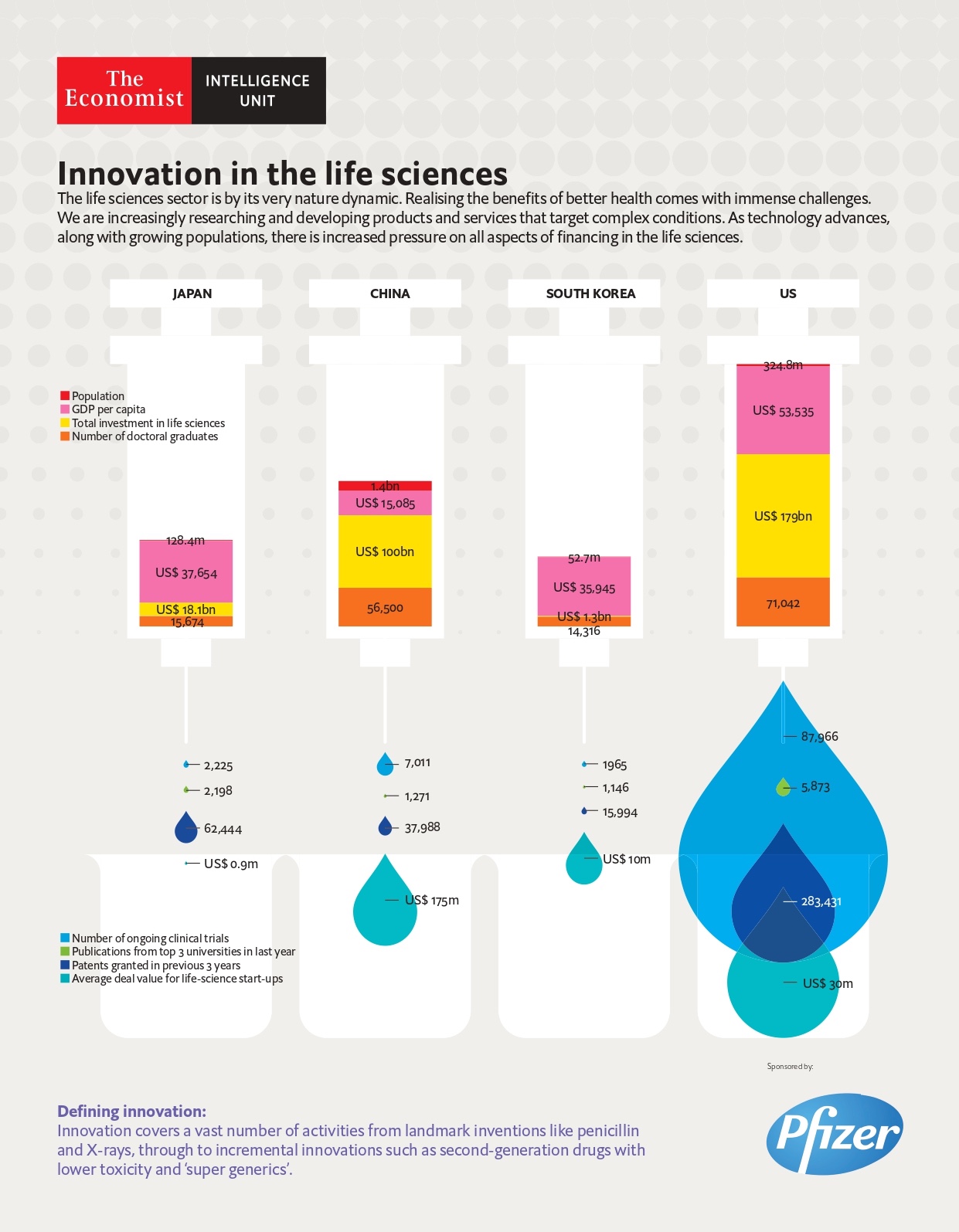
Innovation in the life sciences - Infographic
Download InfographicHealth
Innovation in the life sciences - Infographic

Jesse is a managing editor for Economist Impact based in Asia, with a focus on healthcare.
Based in Hong Kong, Jesse has been working in Asia for over 10 years. Prior to the Economist Impact, he held roles in medical education, scientific publications and medical communications, working in multinational biopharmaceutical companies with a focus in vaccines and biologic medicines. Jesse has extensive experience researching and collating medical information and working with healthcare professionals and patient organisations to develop insight-driven communications programmes.
Jesse holds a BSc in Anatomy and Physiology from the University of Leeds. His editorial interests include the policy response to emerging public health issues and patient advocacy in infectious diseases.
More from this series
Related content

Health system sustainability in Japan: Priorities for structural reform
Japan’s healthcare system has kept the country remarkably healthy with relatively minor changes for nearly six decades. The system provides universal care, generous coverage and the most innovative treatments at a cost that is accessible to all.
Yet the very scope of coverage in the Japanese system obscures the extent to which policymakers have put off making necessary but difficult choices. In particular, the lack of regulation of demand for health services, the pressures of an ageing population and the underdeveloped system for evaluating efficiency and effectiveness of medical products and services could paralyse Japan’s healthcare system as the cost of state-of-the-art medical treatments increase. The economic consequences of this would inevitably reverberate beyond the health system itself.
Without changes in the incentives built into the current system, Japan will struggle to take advantage of medical innovation and to maintain its ability to deliver high-quality, accessible care in the future. As our Health system sustainability in Japan scorecard shows, there are signs that significant fixes to the system may be necessary. Although Japan compares well in many respects to the more expensive and fragmented system in the US, it lags significantly behind the UK and France, and slightly behind neighbouring South Korea, in four of the five principal scoring domains.
Japan’s health system compares especially unfavourably with regard to progress in integrated healthcare and research preparedness, but it also has ground to make up in adequate workforce staffing and in the accountability and patient-centredness of the system. At the same time, it scores well in the provision of a long-term care network. We highlight the report’s key findings below.
Key findings:
Japan’s health financing system is becoming increasingly unsustainable. The country’s existing price review process acts as a brake on structural health system reform. Different incentives are needed to efficiently use medical workforce and hospital resources. Japan’s long-term care system can be a model for other countries but needs better integration with primary care. Japan lags behind developed country peers in the area of research.Download the report to find out more.



